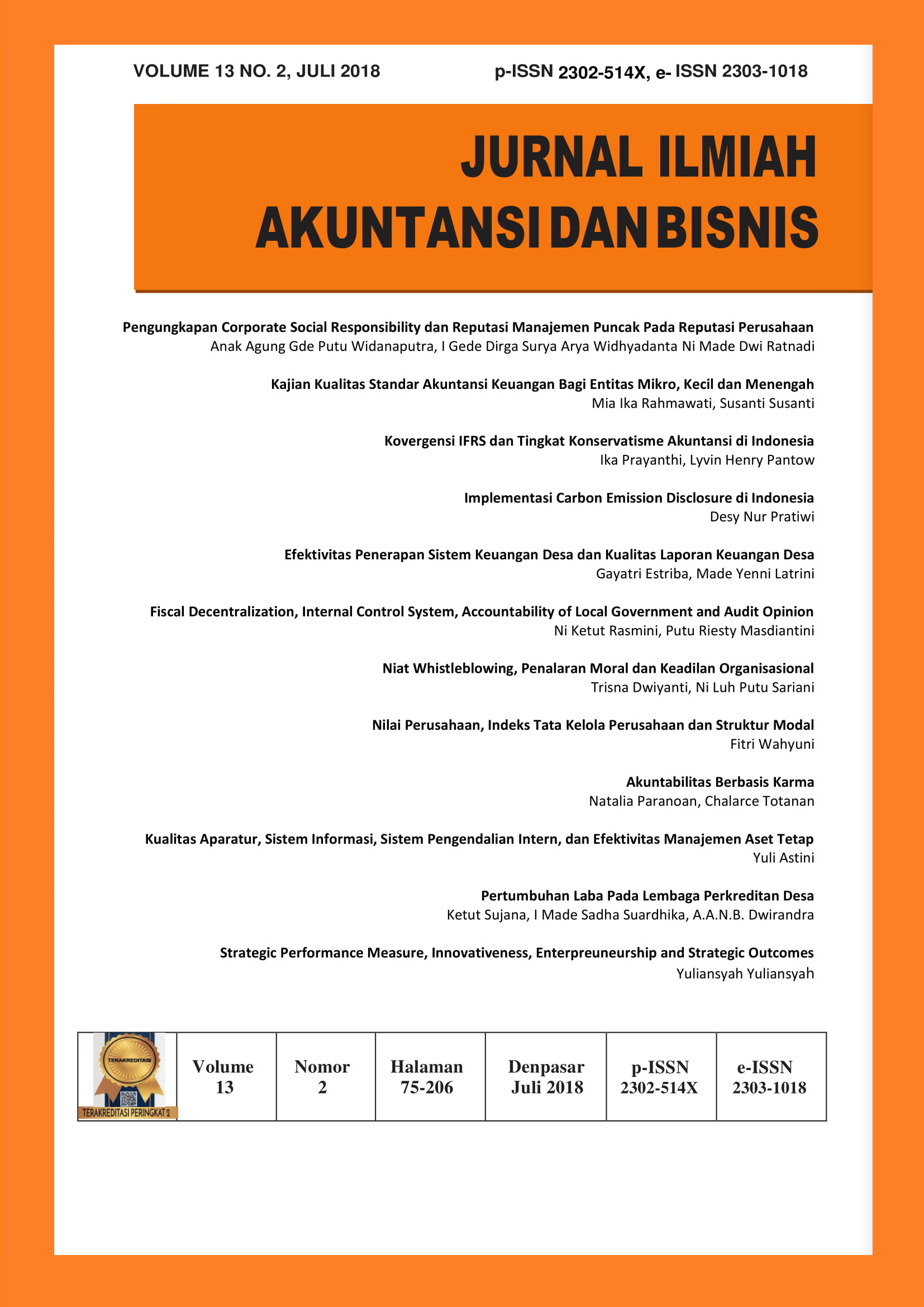Niat Whistleblowing, Penalaran Moral dan Keadilan Organisasional
Abstract
This study examines the effect of moral reasoning and organizational justice (distributive, procedural and interactional) on whistleblowing intentions. This study also extends the current literature by examining the interaction effect of moral reasoning and organizational justice on whistleblowing intentions. This study used laboratory experiment with a 3x 2 x 2 factorial design involving 180 accounting students. Participant’s moral reasoning was measured using Defining Issues Test (DIT). The result found that participant’s moral reasoning level positively affect their propensity to blow the whistle. Furthermore, result of this study also indicate that higher levels of distributive justice, procedural justice and interactional justice increase participant propensity to blow the whistle. This study also found that there is a significant interaction effect of moral reasoning level and organizational justice on whistleblowing intention. This study supports social cognitive theory which states that there is an interaction between individual and situational factors in influencing someone’s behaviour. The paper will help auditors, accountants, and policy makers to design policies that encourage whistleblowing.
Keywords: Moral reasoning, organizational justice, whistleblowing.




















